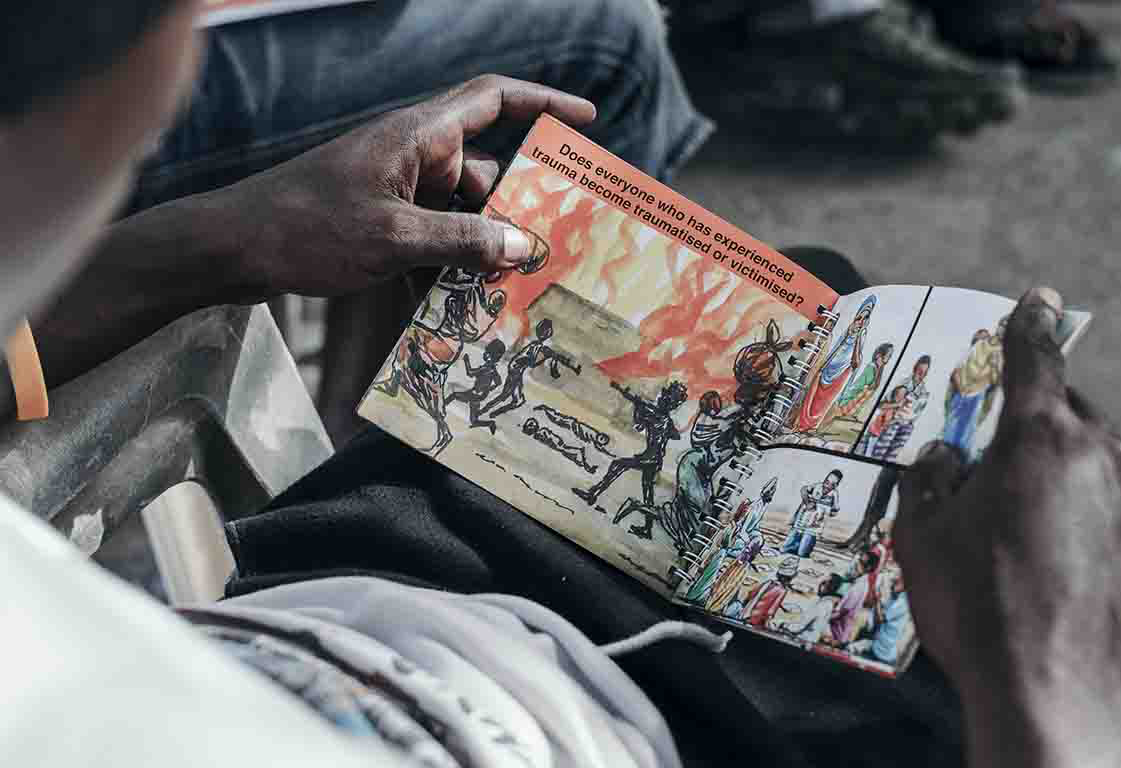
healing-centered peacebuilding approach
mbarking on my peace studies major at Manchester over 30 years ago, I couldn’t have foreseen the transformative journey that lay ahead. The legendary peace studies Professor Ken Brown played a vital role in guiding my career path toward peacebuilding. In 1991, Ken, other graduates, and around 20 students, including myself, traveled by car to Nicaragua for a Jan term class to assist with rebuilding efforts following a hurricane that had devastated the “Mosquito Coast.” As my first time venturing beyond the United States, this experience served as a powerful eye-opener to the outside world.
Pursuing a peace studies major inspired me to dedicate my professional life to serving others. Immediately after college, I worked with gang-impacted youth and families in Pittsburgh, Pennsylvania, as an AmeriCorps volunteer, further expanding my understanding of the intricate human struggles present even within the United States. Although peace studies provided me with the tools to examine conflict, engaging with those affected by ongoing violence and war evoked intense emotions and brought me face-to-face with the raw pain that humanity endures.
Later, as I worked as a peacebuilder in the Balkans and subsequently in West and East Africa, I came to understand that trauma affects us in various ways, some of which we might not even recognize. I realized the importance of comprehending emotional distress to facilitate individual and collective healing, build resilience and dismantle the damage it has inflicted.
This understanding led me to establish the Green String Network (GSN) in Nairobi, Kenya, about eight years ago. As we adopted a new approach to peacebuilding, our focus shifted from trauma to healing. At the 2019 Collective Healing Summit, Dr. Christine Bethell’s words struck a chord: “We are a society organized based on trauma, so we need to go from being trauma-organized to trauma-informed and then, eventually, healing-centered.” As a result, our work in East Africa and the Horn has transitioned from deficit-based trauma-informed thinking to employing a healing-centered peacebuilding approach, recognizing that people are more than their traumas. The individual that emerges in order to survive is often the one who seeks help. A significant aspect of healing involves finding ways to support people in rediscovering their core and envisioning an identity beyond the “surviving” self.
In 2024, under the guidance of Manchester’s Dr. Katy Gray Brown ’91, peace studies students are planning a Jan term trip to Kenya to delve deeper into the healing-centered peacebuilding approach. The objective of the trip is to offer students the chance to examine and learn from real-world examples that showcase the integration of mental health, peacebuilding and healing-centered practices. By engaging with local communities and organizations, students will gain valuable insights into the practical application of these approaches and the transformative impact they can have on fostering lasting peace and well-being.
By engaging with local communities and organizations, such as the Green String Network, students will be able to witness firsthand the transformative power of this approach in promoting lasting peace, resilience and well-being.
I hope that this experience in Kenya will inspire the peace studies students of today like I was inspired more than 30 years ago to reflect on how they can actively participate in healing within their own communities and inform their future focus of service. My hope is that this invaluable exposure will not only support their academic growth in an increasingly important field but also encourage them to become agents of positive change, fostering healing and peace wherever their future may take them.
Angi Yoder-Maina ’94, Ph.D.
